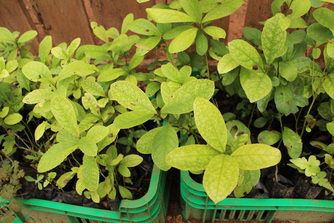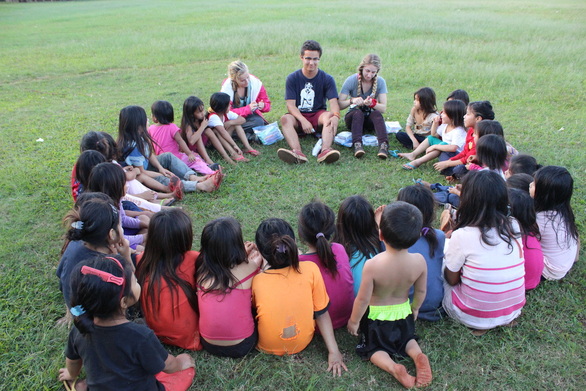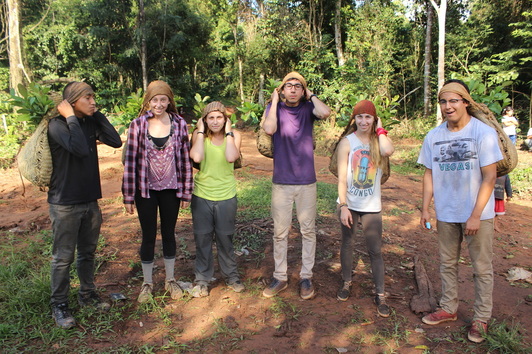
The trip continued with lessons and general chaos, each day spilling into the next in an endless flow of memories. Its hard now to pull out individual events for individual days, its all a cacophony of sound and color in one roller coaster of an adventure. It pushed my limits on my comfort levels, and I feel its made me grow as a person. I think that living like we did would not be as difficult of an adjustment if we did it again. I think that each time the language would get a little easier and the connections stronger.
As far as work in the future, I think that Guayakí as a company would be very interesting to work for. Especially if you got to be like Nelson, and traveled to visit the villages where the mate is grown. For being a company of only twenty-three employees, they make themselves seem like a much larger operation, yet maintain that small town feel. Traveling and working with people is something so fantastic. I loved being able to learn, and adapt, and just be. A job that would allow me the freedom to travel would be fantastic. A book we read before the trip, The Shaman's Apprentice, sparked a little love of ethnobotany in all of us. To be able to live with the indigenous people, learning from what they know about the land would be incredible. The sad part is, that much of this tradition has been lost over time. Western medicines and practices have taken over, and it becomes increasingly harder to find the shaman's of the old world. The people we were living with were one of these cultures, they have lost touch with their sense of what each plant around them is truly capable of.
One of the most interesting, and publicly humiliating tasks we got to complete was part of their mate planting process. After 8,000 little mate plants were taken into the jungle by large truck and by person, the planting began. The plants are loaded into nokó's, or head baskets, which the women carry on their heads, dropping plants in the hole's the men dug early. They get planted in uneven rows, barely distinguishable from the rest of the jungle because they don't clear cut the land. We all were given one of these nokó's and trekked off with our cumbersome load to do our share. The boys received the biggest laughs as they too had to participate in what is considered the women's work. All in all it was a very unique day.
As far as work in the future, I think that Guayakí as a company would be very interesting to work for. Especially if you got to be like Nelson, and traveled to visit the villages where the mate is grown. For being a company of only twenty-three employees, they make themselves seem like a much larger operation, yet maintain that small town feel. Traveling and working with people is something so fantastic. I loved being able to learn, and adapt, and just be. A job that would allow me the freedom to travel would be fantastic. A book we read before the trip, The Shaman's Apprentice, sparked a little love of ethnobotany in all of us. To be able to live with the indigenous people, learning from what they know about the land would be incredible. The sad part is, that much of this tradition has been lost over time. Western medicines and practices have taken over, and it becomes increasingly harder to find the shaman's of the old world. The people we were living with were one of these cultures, they have lost touch with their sense of what each plant around them is truly capable of.
One of the most interesting, and publicly humiliating tasks we got to complete was part of their mate planting process. After 8,000 little mate plants were taken into the jungle by large truck and by person, the planting began. The plants are loaded into nokó's, or head baskets, which the women carry on their heads, dropping plants in the hole's the men dug early. They get planted in uneven rows, barely distinguishable from the rest of the jungle because they don't clear cut the land. We all were given one of these nokó's and trekked off with our cumbersome load to do our share. The boys received the biggest laughs as they too had to participate in what is considered the women's work. All in all it was a very unique day.


 RSS Feed
RSS Feed